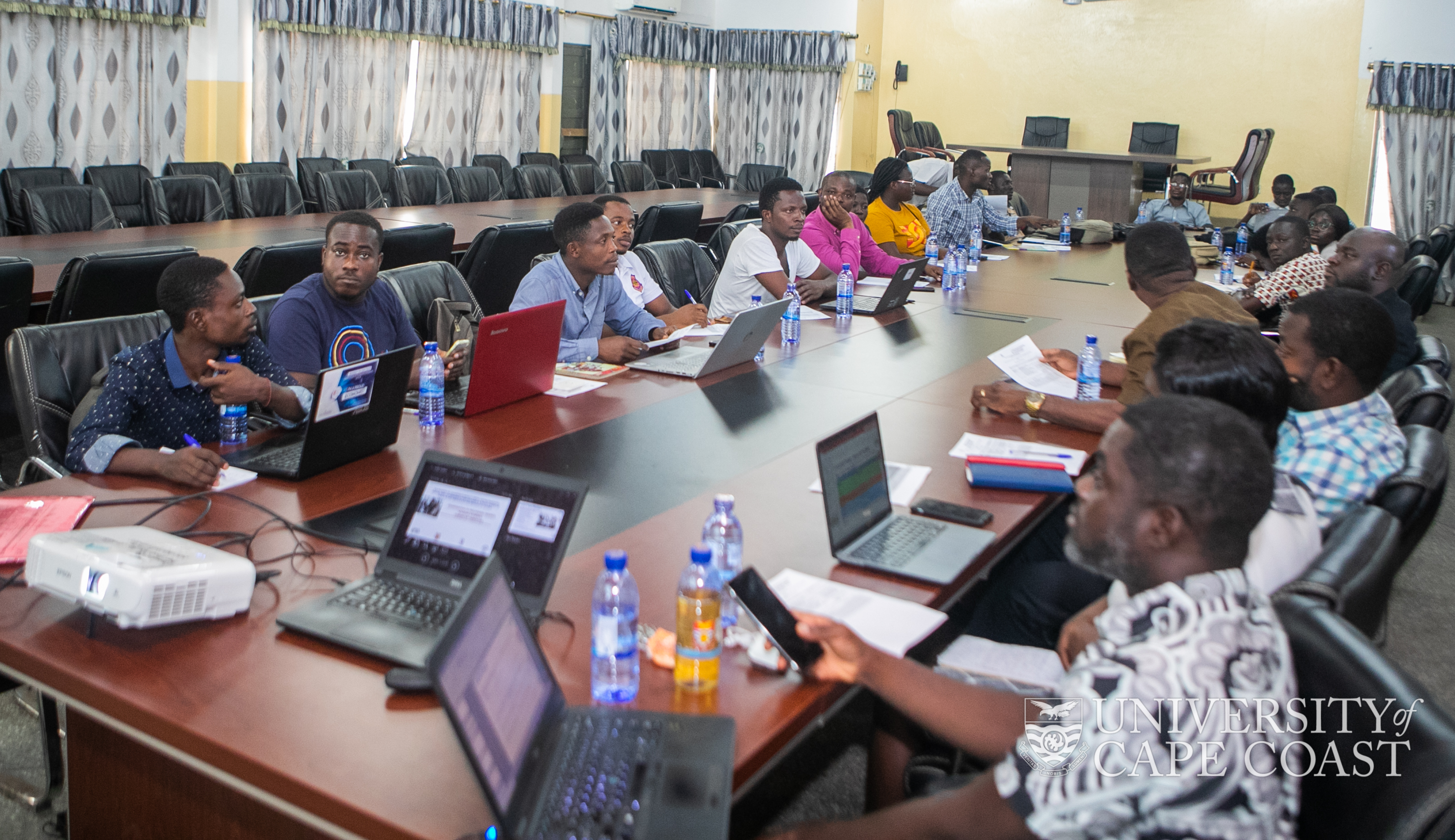The Directorate of Research Innovation and Consultancy (DRIC) has held a research dissemination seminar for some lecturers from the School of Economics.
The research, titled: " Do Women in Leadership Affect Firms' Environmental, Social and Governance Performance? A Pilot Study of Firms in the Greater Accra Region of Ghana," was conducted by researchers from the School of Economics (SoE-UCC) in partnership with the Ghana Statistical Service, Accra, Ghana, and the University of Western Ontario, Canada, led by Dr. Raymond E. Kofinti.
In his presentation, Dr. Kofinti indicated that the team of researchers had found that having gender-diverse directors increases Corporate Social Responsibility (CSR). However, appointing more than six (6) women as directors out of ten directors within a firm could adversely affect CSR gains.
"Firms with a gender diverse directors will advocate for CSR outcomes as compared to counterpart firms that are not gender diverse." he explained.
The findings, according to Dr. Kofinti, advocated gender diversity in the decision-making body of firms, but cautioned against female dominance in the upper echelon of companies.
The study, which sampling and data collection were undertaken by the Ghana Statistical Service with oversight responsibility of SoE-UCC, was to investigate whether women in leadership affect the environmental, social and governance performance of firms in the Greater Accra Region of Ghana.
Discusssions at the research dissemination
The authors used a stratified sampling method to categorise the establishments into sectors and relevant geographies as recommended by World Bank.
It found that firms jointly owned by Ghanaians and foreigners had more CSR than exclusively owned firms by foreigners or Ghanaians.
The research found that firms that were into food and accommodation-related issues were much more gender diverse compared to other sectors in Greater Accra.
In addition, Dr. Kofinti said women would care more about emerging issues such as environmental, social and governance outcomes than their male counterparts.
Unlike female directors, the study explained that male directors were more power oriented and less open to change.
Dr. Raymond E. Kofinti and the team pointed out that maturing firms were adherent to CSR outcomes compared to young and established firms.
The authors mentioned the inability to capture data on the representation of women on the board of directors as one of their limitations in the study. They,therefore, called for a well-defined governance structure within firms.
The project is a research initiative by Private Enterprise Development in Low-Income Countries (PEDL), a programme funded jointly by the Centre for Economic Policy Research (CEPR) and the Foreign, Commonwealth and Development Office (FCDO).
The Researchers from SoE-UCC were Dr. Raymond E. Kofinti, Prof. Emmanuel Ekow Asmah, Dr. Camera Kwasi Obeng, Dr. Emmanuel Joel Aikins Abakah, Dr. Joshua Sebu, Dr. Gloria Essilfie, Dr. William Godfred Cantah and Dr. Ralph Nordjo.


